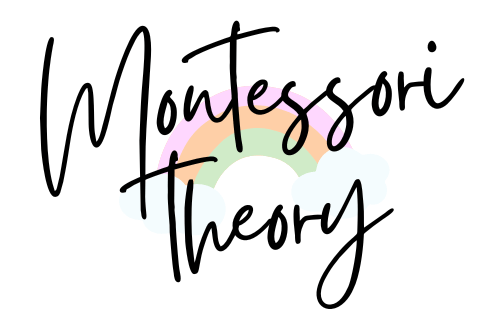Waldorf stands as a distinctive methodology alongside its well-known counterpart, Montessori. Grounded in the holistic philosophy of Rudolf Steiner, Waldorf education has been the subject of various scientific studies that underline its benefits. This article delves into the key advantages of Waldorf education, as illuminated by empirical research. We will explore how Waldorf schools foster intellectual, artistic, and practical skills in children, and how these schools compare and contrast with Montessori education. By examining scientific reports and sources, we aim to provide a comprehensive understanding of the intrinsic values of Waldorf education in nurturing well-rounded, creative, and socially responsible individuals.
Key Takeaways
- Waldorf education promotes holistic development, integrating intellectual, artistic, and practical skills for well-rounded growth.
- It emphasizes creativity and arts in the curriculum, fostering self-expression and imaginative learning.
- Waldorf schools prioritize physical and mental health, contributing to overall well-being and cognitive development.
- The approach focuses on emotional intelligence, aiding children in understanding and managing their emotions effectively.
- Studies show reduced stress and anxiety in Waldorf students compared to those in traditional education systems.
What is Waldorf Education
-
Core Principles & Purpose
Waldorf education is centered around the holistic development of children, aiming to cultivate a balanced blend of intellectual, artistic, and practical skills. This approach is not just about nurturing academic abilities but also about fostering artistic talents and enhancing social-emotional aspects of each child’s personality. The curriculum in Waldorf schools is uniquely structured around Rudolf Steiner’s theory of child development, which divides childhood into three distinct seven-year stages. Each of these stages is thoughtfully tailored to meet the evolving cognitive, emotional, and physical needs of children as they grow.
-
Embracing Creativity and Nature in Learning
A defining feature of Waldorf education is its strong emphasis on creative and artistic learning. Activities such as storytelling, music, theater, writing, and drawing are not mere extracurriculars but integral parts of the learning process. These activities are designed to support imaginative learning and encourage self-expression among students. Additionally, Waldorf schools often place a significant emphasis on fostering a connection with the natural world. This approach instills a sense of respect and responsibility towards the environment, aligning with the philosophy of nurturing well-rounded individuals who are attuned to the world around them.
-
Educational Environment
The educational environment in Waldorf schools is also carefully crafted to support its unique pedagogical approach. One of the key elements is the teacher-student relationship. Waldorf education places great importance on developing deep, nurturing relationships between teachers and students. It’s common for teachers to remain with the same class for several years, allowing them to build strong, supportive bonds with their students. This continuity helps in creating a stable and understanding learning environment. Furthermore, the classrooms in Waldorf schools are typically designed to be aesthetically pleasing and calming. They often use natural materials and are arranged to create a warm, homely atmosphere, which is believed to be conducive to learning and personal growth.
What Scientific Studies Say About The Strengths And Drawbacks Of Waldorf Education
Waldorf Pedagogy Advantages
- Holistic Development: Waldorf education emphasizes the development of each child’s intellectual, artistic, and practical skills in a holistic manner. This approach nurtures well-rounded individuals, aiming to maximize their learning and application potential. [Kamala Gahramanova & Huryal Karamov, 2021]
- Emphasis on Creativity and Arts: The curriculum is rich in arts, music, and crafts, fostering creativity and self-expression. This approach helps in developing confident, conscious, and thought-provoking individuals. [Robert Huchingson & J. Huchingson, 1993]
- Focus on Physical and Mental Health: Waldorf schools prioritize physical activities and mental well-being, contributing to better overall health in students. This includes better physical and psychical health, and developed cognitive flairs compared to traditional school students. [O. Ionova, 2013; E. Sobo, 2015]
- Development of Emotional Intelligence: There is a strong emphasis on emotional development, which helps children in understanding and managing their emotions effectively. This focus on the emotional side is followed by intellectual aptitudes. [Meryem Çelik, 2013]
- Reduced Stress and Anxiety: Studies indicate lower levels of impostor phenomenon and test anxiety among Waldorf students compared to those in traditional education systems. [Patricia Silion et al., 2016]
- Spiritual and Moral Development: Waldorf education incorporates spiritual and moral learning, contributing to the development of a well-rounded character. It creates spaces for spirituality, promoting a holistic and integral approach conducive to the cultivation of spirituality in schools. [Martyn Rawson, 2020; Gilad Goldshmidt, 2017]
- Individualized Learning: The education is tailored to meet the developmental stages of children, focusing on their individual growth patterns. Waldorf education allows children to develop at distinct stages of doing, feeling, and thinking. [Kate Attfield, 2022]
Waldorf Education Disadvantages
- Academic Achievement: Studies suggest Waldorf education may not significantly boost academic achievements in traditional subjects like science, potentially impacting students’ performance in standardized educational settings. [Silvia Salchegger et al., 2021]
- Limited Focus on Technology: Waldorf schools’ delayed introduction of technology could disadvantage students in a tech-centric world, potentially affecting their digital literacy and future career opportunities.
- Rigid Routines and Adult Control: Highlighted by M. Wilson in 2014, the structured environment in Waldorf schools might limit children’s autonomy, possibly affecting their adaptability and decision-making skills. [M. Wilson, 2014]
- Cost and Accessibility: The private nature of many Waldorf schools makes them financially inaccessible for some families, potentially limiting the diversity and reach of this educational approach.
- Lack of Standardized Testing: The absence of standardized testing in Waldorf education can make it challenging to measure student progress against conventional benchmarks, possibly affecting their readiness for future academic assessments.
- Specialized Training for Teachers: The need for specialized training for Waldorf educators can limit the availability of qualified teachers and pose challenges in integrating Waldorf methods with other educational systems.
- Cultural and Spiritual Aspects: The spiritual and cultural elements rooted in anthroposophy may not align with every family’s beliefs, potentially limiting the inclusivity of Waldorf education.
Waldorf and Montessori: Parallel Paths in Child Development
Concluding this exploration into Waldorf education, we see it as a path that intertwines the artistic with the intellectual, shaping children not just as learners, but as creative, empathetic individuals. It’s evident that this approach, much like Montessori, focuses on nurturing the child’s complete development. The strengths in fostering creativity, emotional intelligence, and holistic growth as highlighted by research, position Waldorf alongside Montessori as pivotal in shaping well-rounded individuals for a modern world. As we progress, integrating the best of Waldorf and Montessori philosophies could offer enriched pathways in education, crucial for adapting to the evolving demands of our times.
Sources
- Gahramanova, K., & Karamov, H., 2021. WALDORF PEDAQOGİKASINDA ŞƏXSİYYƏTİN İNKİŞAFI. Number 17,2021. https://doi.org/10.30546/2616-4418.17.2021.84.
- Huchingson, R., & Huchingson, J., 1993. Waldorf Education as a Program for Gifted Students. Journal for the Education of the Gifted, 16, pp. 400 – 419. https://doi.org/10.1177/016235329301600406.
- Ionova, O., 2013. The formation of person’s health: experience of Waldorf school. Pedagogics, psychology, medical-biological problems of physical training and sports, 17, pp. 35-40. https://doi.org/10.6084/M9.FIGSHARE.775337.
- Sobo, E., 2015. Salutogenic Education? Movement and Whole Child Health in a Waldorf (Steiner) School.. Medical anthropology quarterly, 29 2, pp. 137-56 . https://doi.org/10.1111/maq.12140.
- Çelik, M., 2013. Learning That Grows With Child: The Waldorf Approach Early Childhood Education. . https://doi.org/10.17556/jef.93213.
- Silion, P., Panduri, Ş., , B., , R., Dudău, D., & Tomşa, R., 2016. Impostor phenomenon and test anxiety among Romanian graduates of Waldorf School compared to those of traditional education. , pp. 228-232. https://doi.org/10.15303/RJEAP.2016.SI1.A48.
- Goldshmidt, G., 2017. Waldorf Education as Spiritual Education. Religion & Education, 44, pp. 346 – 363. https://doi.org/10.1080/15507394.2017.1294400.
- Goldshmidt, G. (2017). Waldorf Education as Spiritual Education. Religion & Education, 44, 346 – 363. https://doi.org/10.1080/15507394.2017.1294400.
- Attfield, K., 2022. THE UNIQUE, SPIRITUAL AND INSIGHTFUL EDUCATION OF WALDORF PEDAGOGY. Spiritual-intellectual upbringing and teaching of youth in the 21st century. https://doi.org/10.34142//2708-4809.siuty.2022.03.
- Salchegger, S., Wallner-Paschon, C., & Bertsch, C., 2021. Explaining Waldorf students’ high motivation but moderate achievement in science: is inquiry-based science education the key?. Large-Scale Assessments in Education, 9. https://doi.org/10.1186/s40536-021-00107-3.
- Wilson, M., 2014. CONSTRUCTING CHILDHOOD AND TEACHER AUTHORITY IN A WALDORF DAYCARE. Critical Discourse Studies, 11, pp. 211 – 229. https://doi.org/10.1080/17405904.2013.852984.




